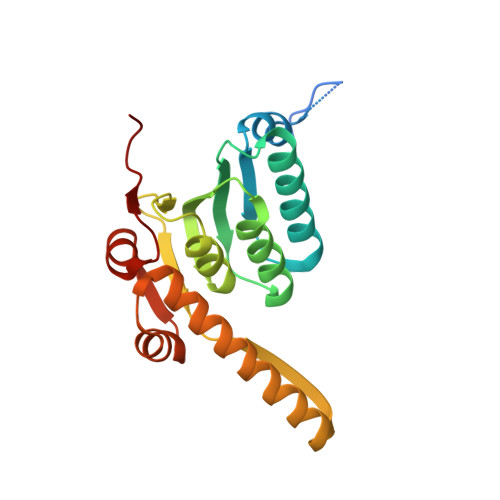Structure-Based Design and Development of Phosphine Oxides as a Novel Chemotype for Antibiotics that Dysregulate Bacterial ClpP Proteases.
Lin, F., Mabanglo, M.F., Zhou, J.L., Binepal, G., Barghash, M.M., Wong, K.S., Gray-Owen, S.D., Batey, R.A., Houry, W.A.(2024) J Med Chem 67: 15131-15147
- PubMed: 39221504
- DOI: https://doi.org/10.1021/acs.jmedchem.4c00773
- Primary Citation of Related Structures:
8SZM, 8SZN - PubMed Abstract:
A series of arylsulfones and heteroarylsulfones have previously been demonstrated to dysregulate the conserved bacterial ClpP protease, causing the unspecific degradation of essential cellular housekeeping proteins and ultimately resulting in cell death. A cocrystal structure of a 2-β-sulfonylamide analog, ACP1-06, with Escherichia coli ClpP showed that its 2-pyridyl sulfonyl substituent adopts two orientations in the binding site related through a sulfone bond rotation. From this, a new bis -aryl phosphine oxide scaffold, designated as ACP6, was designed based on a "conformation merging" approach of the dual orientation of the ACP1-06 sulfone. One analog, ACP6-12, exhibited over a 10-fold increase in activity over the parent ACP1-06 compound, and a cocrystal X-ray structure with ClpP confirmed its predicted binding conformation. This allowed for a comparative analysis of how different ligand classes bind to the hydrophobic binding site. The study highlights the successful application of structure-based rational design of novel phosphine oxide-based antibiotics.
- Department of Chemistry, University of Toronto, Toronto, Ontario M5S 3H6, Canada.
Organizational Affiliation:

















